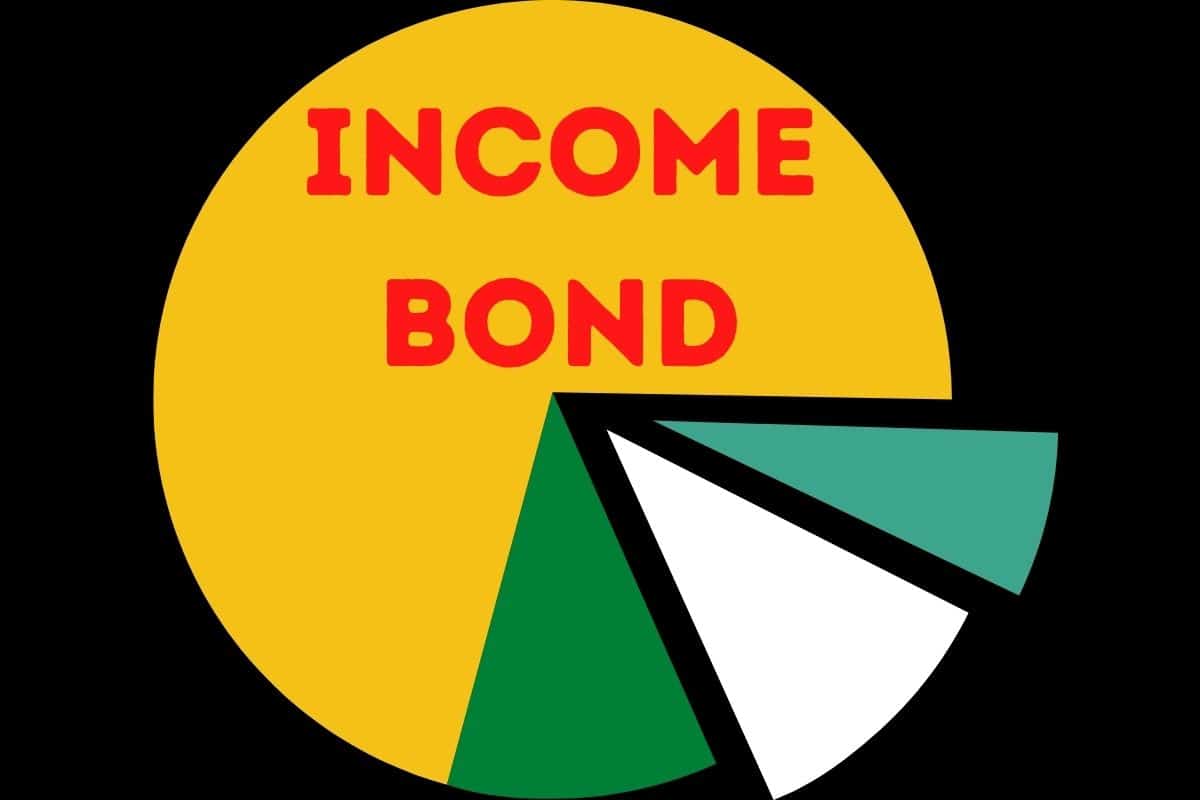Buying a house is one investment that’s worth taking, however, for a lot of people, the process can really seem stressful and tiring. Albeit it is a great idea to have a home to call your own in your box of assets. This simple and comprehensive guide will walk you through an easy and non-exhausting process of buying a house and will help know what credit score you need to buy a house and, how much cash income and savings you need to buy a house.
What Do I Need to Buy a House?
“Do I qualify for a mortgage?” is the first question a home buyer should ask. If so, you’re probably in good shape to purchase your first home.
Knowing your home loan alternatives and the minimum requirements to qualify are the first steps in answering this question. To determine whether you are mortgage-eligible to buy a house, lenders will examine your credit score, income, savings, debt, and documentation.
The good news is that meeting these requirements will most likely be less difficult than you think.
One important thing you will need is a mortgage loan to buy or help finance the buying of your new house unless you can pay cash. The mortgage procedure may appear daunting at first, but with this simple guide, it shouldn’t be as difficult.
The following are basic steps to buying a house.
#1. Ensure You’re Ready to Buy a House
Purchasing a home is a significant financial investment. Make sure you’re ready to be a homeowner before you start looking for houses or comparing mortgage choices.
Are you contemplating whether or not to purchase a home? Let’s take a look at some of the factors that both lenders and homeowners should think about.
Income and Employment Status
Your lender isn’t only interested in knowing how much money you make. They’ll also want to review your employment record (typically for the past two years) to ensure that your income is consistent and steady.
It’s all about putting together the correct documentation to prove consistent employment when it comes to preparing your income. If you’re on the payroll, all you’ll need are recent pay statements and W-2s. On the other hand, you’ll have to provide your tax returns and other documentation that the lender asks for if you’re self-employed.
Credit Requirements
Your credit score has a significant impact on the types of loans and interest rates you are eligible for. Your credit score tells lenders what risk they are taking in granting you a loan.
While you prepare to secure a mortgage, taking actions to enhance your credit score and minimize your debt can pay off big. Higher numbers imply more favorable lending terms and lower interest rates.
Your credit score is determined by the following factors:
- History of payments
- How much you owe
- Your credit history’s length
- Your search for fresh credit
- Types of credit you’ve used
What credit score will you need to get a home loan that will buy you a house? To qualify for the majority of loans, most lenders require a credit score of at least 620. Although, a credit score of 720 or higher will usually earn you the finest loan terms. However, with a typical FICO score of 580, you may be eligible for an FHA or VA loan from select lenders. With a median score below 620, you’ll need a housing expense ratio of no more than 38 percent and an overall DTI of no more than 45 percent to qualify for them.
Timing
Whether or not it’s a good time to buy a house depends on individual circumstance(s) (such as financial readiness and lifestyle preferences) as well as market conditions (such as economic health and current mortgage rates).
Finally, the best timing to buy a property is dependent on your own circumstances. Ensure that Before making any major financial decisions, such as purchasing a home, you consult a financial advisor.
Willingness to Live in a Single Location
A mortgage can be a long-term commitment of up to 30 years. Even if you don’t have to stay in your home for the duration of your loan, it’s still a huge decision. It’s harder to relocate when you own a property. Unless you’re buying a second house or an investment property, you’ll most likely have to sell your current home first, which can take a long time.
Consider whether you’re prepared to stay in your current location for at least another few years. Also, take into account your job objectives, family duties, and other factors. Each of these considerations will have a significant impact on the style of home you purchase and the location of your primary residence.
Debt-To-Income Ratio
Your current debts will influence how much money you can borrow to purchase a home. Mortgage approval may be hampered by high monthly debt (such as credit card debt, student loans, and other installment loans). Low monthly debt, on the other hand, can assist you in purchasing a more expensive home.
To determine the maximum size of your loan, your mortgage lender will assess your debt-to-income ratio (DTI). The debt-to-income ratio (DTI) is a measurement of how much of your gross monthly income you spend on debt.
Lenders look at the money left over after all of your other debts are paid to determine how much of a monthly mortgage payment you can afford.
The following is an example of an ideal DTI for several mortgage programs:
- 36-43% for a conventional loan
- 43% for an FHA loan
- 41% for a USDA loan
- 41% for a VA loan
Higher ratios are possible with ‘compensating factors.’ These include good credit, a big down payment, and ample financial reserves.
Your new home’s mortgage payment should not be more than 28%-31% of your gross monthly income.
Also, keep in mind that other homeownership expenses like homeowners insurance and property taxes will be factored into your DTI. Use a mortgage calculator to determine your ‘true’ mortgage eligibility.
Liquid Assets
Even with a mortgage, you’ll need liquid assets to fund a property purchase, specifically:
No-money-down home buying is feasible, but most homeowners require a down payment. Hence, in closing, a down payment of cash is the first substantial loan payment you make to buy a house. The amount of a down payment required varies on the loan type and amount borrowed. You can buy a property with just 3% down (though there are benefits to putting down more).
Closing fees: Before moving into your new house, you must pay closing costs. Your lender and other third parties charge you closing costs to create your loan. Closing expenses vary depending on your location and loan type. Thus, Expect to pay 3 – 6% of your home’s value in closing expenses. Seller concessions or mortgage roll-ins may be used to cover some or all closing fees.
#2. Determine How Much You Can Afford on a House
When you’re ready to buy a home, make a budget. Calculate your DTI ratio first. Examine your present bills and income to determine how much you can afford to pay each month for a mortgage.
Buying a home comes with expenses that renting does not. You’ll also need to pay property taxes and have homeowners insurance. Include these costs in your household budget when determining your homebuying budget.
#3. Save for Down Payment and Closing Costs
Savings accounts and investments are popular ways to save for you to buy a house. If you have supportive relatives willing to support you, you may be able to use gift money towards your down payment (in which case, be sure to provide your lender with a gift letter).
But surely, buying a home also demands a minimum down payment.
A conventional loan requires a minimum down payment of 3 and 5% of the buying price. While a Federal Housing Administration (FHA) loan requires a minimum of 3.5 percent.
USDA and VA loans do not demand down payment cash so if you qualify, you can buy a house with no money down.
Ps: No longer do you need 20% down. However, some borrowers choose to put 20% down to avoid paying PMI (PMI).
#4. Find the Right Mortgage for You
The type of mortgage you use to buy a home influences your eligibility (including the minimum down payment) and how you repay it. Choosing the correct house loan might help you get approved and save you thousands.
It’s critical to understand the benefits and downsides of each mortgage type before making a choice. Here are some common mortgages:
- Conventional loans are not backed by the federal government and are made by private lenders. They require lower down payments but stricter criteria. Most mortgages in the US are conventional and they require as little as 3% down.
- The Federal Housing Administration backs FHA loans. In general, they are easier to qualify for than conventional loans but demand more mortgage insurance. As a result, FHA credit score requirements are less stringent. An FHA loan requires from 3.5% down payment and above.
- VA loans are for active or retired service members and their qualifying spouses. No down payment is needed for VA purchase loans.
- Jumbo loans are mortgages for homes that cost more than the normal lending limit. You need a big down payment and a high credit score for this kind of loan
- USDA loan helps residents in rural and suburban regions buy homes. You can acquire this loan with no money down if you live in a rural location and meet income requirements.
- Renovation loans allow you to include home improvement costs in the loan amount. Especially when mortgage rates are low, this might be a cheaper way to borrow money for repairs than a personal loan while paying lesser interest
#5. Get Preapproved for a Mortgage
It’s time to be preapproved for a mortgage before you start looking for a home. Your lender will provide you a preapproval letter when you apply, stating how much you’re approved for depending on your credit, assets, and income. Your real estate agent can use your preapproval letter to assist you to identify properties that fit within your budget.
To obtain preapproved, you must submit an application to your lender. Answering questions about your income, assets, and the home you intend to buy are all part of the preapproval process. A credit check will also be performed.
#6. Search for a Real Estate Agent
You’ve got your pre-approval and know what kind of home you want, now let’s discover someone to assist you in your search. An ideal real estate agent can make a tremendous impact throughout the process of buying a house eg, from knowing the nook and crannies of the local market to providing moral support when the search seems interminable, to assisting you in negotiating with a seller.
Additionally, Interviewing at least three agents is a smart idea. Inquire of folks you know who have recently purchased the property if they would recommend their agent. There’s only one absolute no-no here: Don’t hire the real estate agent who is selling the home you want to buy. You want an agent to represent you and advocate for you.
The seller usually pays a commission to the buyer’s agent. You will sign a representation agreement with the real estate agent, but you will not be responsible for their payment.
#7. Start House Hunting
Your real estate agent will help you find houses within your budget. Make a list of your top priorities, which may vary depending on whether you’re searching for a starter home or a lifetime home, and the style of house you want.
Consider these factors when looking for a home:
- Price
- Square footage
- Home condition and the possible need for repairs
- Access to public transportation
- Number of bedrooms
- Backyard/swimming pool
- Local entertainment options
- Local school district ranking
- Property value trends
- Property/real estate taxes
Show your agent your priorities in order of importance. You’ll be shown houses that meet your criteria. Don’t be discouraged if your quest for the perfect home takes longer than intended. Only you can choose the right property that meets your taste so, see a lot of homes before deciding on one to make an offer on. Also know that much of the house-seeking process can be done online.
As soon as you find a property that meets your criteria, you can now make an offer.
#8. Make an offer
Offer letters must be written when making an offer on a residence. Name, current address, and offer price are all included in your offer letter. It will also state the seller’s deadline to react.
Most offers require an earnest money deposit as well. 1 – 2% of the purchase price is considered an earnest money deposit.
Furthermore, your agent will nearly always draft the offer letter for you, but you can do it yourself. Once the offer is prepared, your agent will contact the seller or his agent. You must submit a written offer letter when you decide to make an offer on a home.
After you submit your offer, negotiations may continue for some time. Allow your real estate agent to assist you in the bargaining process, and don’t be afraid to walk away if you can’t come to an agreement. It’s time to move on to the appraisal and inspection after you and the seller have agreed on an offer.
#9. Inspect the House
A home inspection isn’t normally required by lenders, but you should have one before buying a house. During a home inspection, an inspector will walk around the house looking for issues. They will check electrical systems, roofs, appliances, and more. He will later provide you with a list of issues detected after the inspection.
Afterward, you should go over the inspection report line by line, identifying major issues. Ask the seller to fix any major health issues identified (like lead paint or mold) before closing. If you two don’t come to common terms, you may want to explore other possibilities. Make sure your agent goes over the results with you to help you point out major problems.
Remember that you’ll be responsible for costly repairs after the sale. Hence, to avoid costly problems (such as foundation cracks or improperly placed windows), have a house inspection done before buying.
#10. Get Home Appraisal
An appraisal is a report that shows the current value of a property. An appraisal is necessary before obtaining a mortgage loan.
To lend more money than a home is worth, lenders demand appraisals. Your offer may be rejected if the appraised value is below your offer. Consider disputing the assessment results if you believe the appraised value is too low. Besides, you can’t always rely on a reviewer’s agreement.
Offers should also include an appraisal condition. This allows buyers to bail out (or negotiate a cheaper price) without forfeiting their earnest money investment. In the same way as inspection contingencies, assessment contingencies might vary.
#11. Negotiate Any Repairs or Credits With the Seller
After you receive your inspection report, ask your seller to rectify any issues you noticed. You have three options:
- Ask for a discount based on inspection results.
- You can ask the seller to credit some of your closing costs.
- Ask the seller to address the issues before you close.
#12. Walkthrough the house finally
Even if you are fully in love with the property, you should conduct a last inspection in your new home before closing. This gives you the opportunity to double-check and ensure that the seller has everything in good condition.
#13. Close On Your New Home
You’ve made it to the final step! Understanding the closing documents before time will help ease the closing process.
Your lender must provide you with the closing disclosure three days prior to the closing. Compare it to your Loan Estimate to check if closing expenses have adjusted. This can help you know the amount of total cash required to close the buy of your new house
Also, It’s necessary to attend your closing meeting after you’ve reviewed your Closing Disclosure. Bring your identification, a copy of your Closing Disclosure, and evidence of cash to cover the closing fees on the day you’ll buy your new house. You’ll sign a settlement statement, which details all of the expenditures associated with the purchase of your house. This is the time when you make your down payment and pay for your closing charges. You’ll also sign the mortgage note, which guarantees that you’ll pay back the money. Finally, to secure the mortgage note, you’ll sign the mortgage or deed of trust.
Once the closing process is completed, you’ve now become a homeowner.
What Credit Score Do I Need to Buy a House?
Your credit score has a significant impact on the types of loans and interest rates you are eligible for to buy a house. Your credit score tells lenders what risk they are taking in granting you a loan.
While you prepare to secure a mortgage and buy a house, taking actions to enhance your credit score and minimize your debt can pay off big. Higher numbers imply more favorable lending terms and lower interest rates.
Your credit score is determined by the following factors:
- History of payments
- How much you owe
- Your credit history’s length
- Your search for fresh credit
- Types of credit you’ve used
What credit score will you need to get a home loan that will buy you a house? To qualify for the majority of loans, most lenders require a credit score of at least 620. Although, a credit score of 720 or higher will usually earn you the finest loan terms to help you buy a house. However, with a typical FICO score of 580, you may be eligible for an FHA or VA loan from select lenders. With a median score below 620, you’ll need a housing expense ratio of no more than 38% and an overall DTI of no more than 45% to qualify for them.
How Much Income Do I Need to Buy a House?
You need a consistent source of income to be able to buy a house. Your earnings over the past two years will reflect your ability to make mortgage payments. Lenders are always curious about how much income you make so that they can calculate the risk they’re taking and how much it’ll cost them, and see if they can actually issue the mortgage.
How Much Cash Do I Need to Buy a House?
Before you buy a house, you should ensure that you have enough cash on hand to cover any unexpected expenses. These reserves should be able to cover at least two months’ worth of mortgage payments. More so, It is possible that your lender will want you to make more payments for a longer period of time depending on the sort of loan you are looking for and your eligibility.
How Much Savings Do I Need to Buy a House?
You’ll need enough savings to make the minimum down payment on your loan and pay closing expenses to buy a house, although you might be able to get some assistance with this from family or friends. However, just ensure that you have enough savings to buy a house.
Roughly, Savings of at least 25% of the home’s sale price in cash is a wise approach to buying a house, if you plan on taking out a mortgage.
How Long Does Buying a House Take?
On average, it takes 5–6 months to buy a house from start to finish. Depending on how much of the process you complete ahead of time. So whether you’re selling another property at the same time, or whether you’re paying cash or applying for a mortgage to buy a house, this process could take lesser time.
Conclusion
To summarize this process, first, prepare to be a homeowner and create a budget. The next step is to obtain preapproved for a mortgage. Then you’ll start looking for a home, preferably with a trustworthy realtor. You’ll work with your agent to submit an offer and negotiate with the seller after finding a home.
You’ll get an appraisal and an inspection when you two come to an agreement. If the inspection reveals a severe issue, you may want to bargain for repairs or credits. You’ll also do one more walkthrough before buying. If it appeals to you, then you can move in and enjoy your new status as a homeowner.
FAQs
What is the lowest credit score to purchase a home?
For a conventional loan, most lenders want a credit score of at least 620 to buy a house. With that aside, you can still acquire a loan with a poor credit score, even if it’s in the 500s.
What credit score is needed for FHA?
An FHA loan requires a minimum 3.5% down payment for credit scores of 580 and higher. If you can make a 10% down payment, your credit score can be in the 500 – 579 range
How long do you have to keep an FHA loan?
FHA mortgages come in two main durations: 15-year and 30-year. A 30-year legal obligation to the initial FHA home loan is the maximum length of time you can be legally bound to it. Refinancing may change the length of time you pay on the mortgage, but the original loan will be 30 years or 15.
How much deposit do I need for a House 2023?
A down payment of at least 5% of the purchase price is necessary, with the remaining funds (the mortgage) coming from a lender such as a bank or financial institution.
How much savings do i need to buy a house?
Roughly, Savings of at least 25% of the home’s sale price in cash is a wise approach to buy a house, if you plan on taking out a mortgage.
Related Articles
- CLOSING AGENT: Salary, Job Description & How to Become an Agent (Detailed Guide )
- COST OF HOME INSPECTION: Average Inspection Costs In The United State
- AVERAGE DOWN HOUSE PAYMENT: How Much You Need to Buy a House 2022
- HOW TO BUY A HOUSE IN CALIFORNIA: Tips, facts & 8 Steps to Buy a House in California






